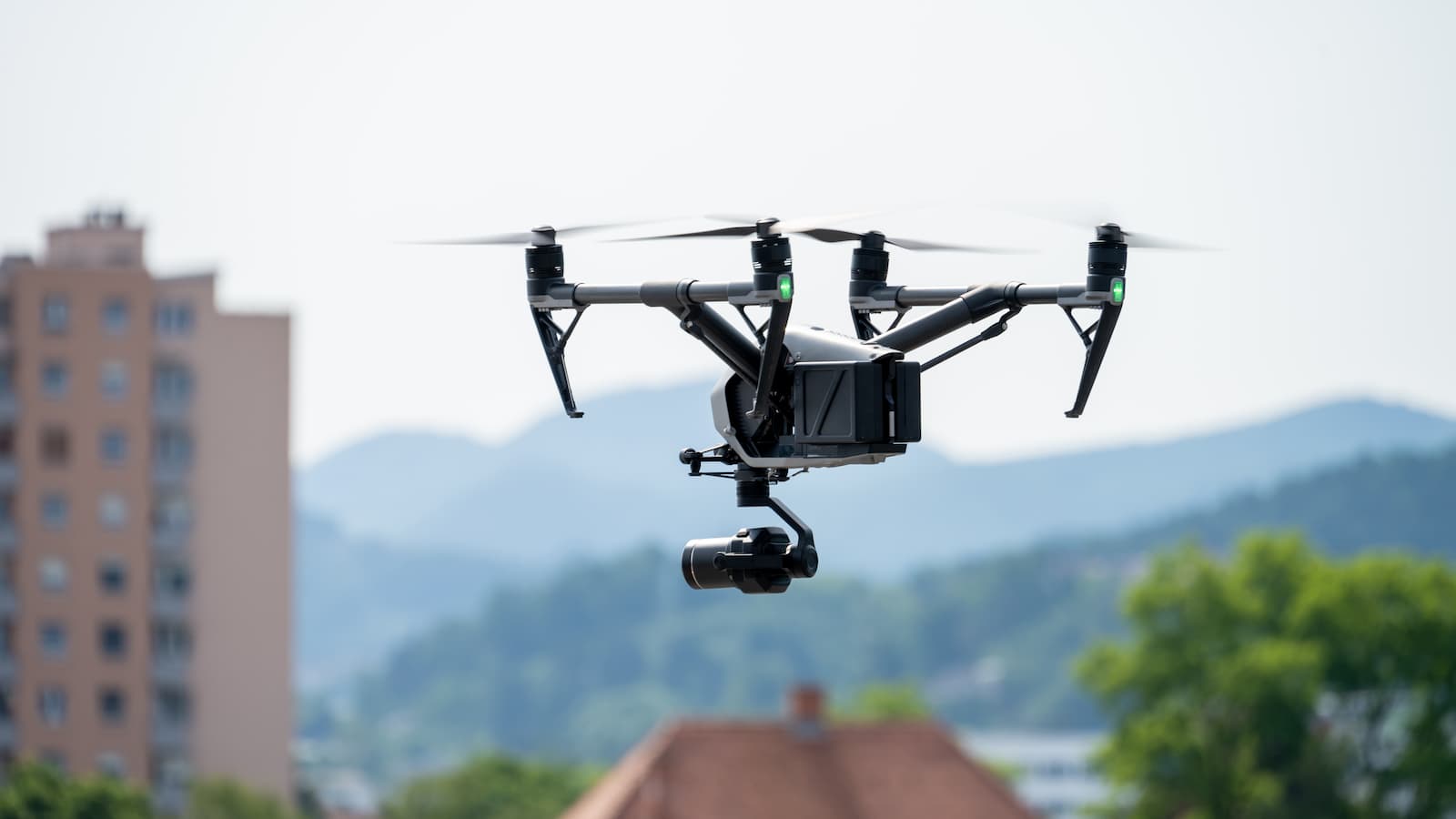
Local councils across the UK are increasingly using drones to monitor planning breaches, sparking a debate about whether this technology infringes on homeowners’ privacy.
Drones can help councils save on time and costs when investigating homes, extensions and anything else that has been built without planning permission, so there is little surprise to see their rise in popularity.
However, could this increased use of drones come at the cost of homeowners’ privacy? We explore how councils deploy drones, the regulations in place and whether homeowners should be concerned.
How are drones used in planning enforcement?
Drones, or unmanned aerial vehicles (UAVs), offer councils a tool for monitoring potential planning and building regulation breaches.
They are used in situations where access to a site is restricted, safety risks are present, or large areas need to be surveyed.
For example, Bradford Council uses drones to document development activities, investigate dangerous structures, and create 3D digital models. They claim aerial imagery provides records of a site’s condition and operations, enabling enforcement teams to assess compliance.
Drones are operated under strict regulations outlined by the Civil Aviation Authority (CAA). Risk assessments, pre-flight safety checks and adherence to an operations manual ensure all flights are conducted safely and legally.
Bring your dream home to life with expert advice, how to guides and design inspiration. Sign up for our newsletter and get two free tickets to a Homebuilding & Renovating Show near you.
Which councils use drones?
There are a growing number of councils across the UK utilising drones for planning breaches as well as for environmental enforcement, road safety and checking properties for mould and damp.
As mentioned Bradford Council use drones, as well as:
- Bristol City Council
- Buckinghamshire Council
- Cambridge City Council
- Epping Forest council
- Leeds City Council
- Liverpool City Council
- Milton Keynes Council
- Newcastle City Council
- Sandwell Council
- Thurrock Council
- Windsor and Maidenhead Council
This practice is gaining traction nationwide, with councils increasingly incorporating drones into their compliance strategies.
Is privacy at risk with drone use?
The introduction of drones for planning enforcement has raised concerns about privacy.
Some privacy advocates such as Toby Green worry that this technology may infringe upon the public’s personal space as he claimed: “While councils have a duty to enforce planning laws, it’s crucial that the use of drones respects individual privacy and remains transparent to the public.”
According to the Information Commissioner’s Office (ICO), which oversees data protection in the UK, there is concern about drones being used without clear purpose justification or adequate privacy safeguards.
An ICO spokesperson said: “We are always concerned with developments like this that they will start to be used without having a clear purpose justification and without data protection safeguards in place.”
Privacy experts argue that councils need to be transparent and provide advance notice if drones are going to be flown over residential areas, ensuring that their use is properly justified and that residents’ rights are respected. The ICO’s concerns highlight the need for councils to balance enforcement with privacy protection to avoid potential legal issues.
Should homeowners be concerned?
While there are concerns around privacy, experts point out that drones are usually subject to strict oversight.
The Royal Town Planning Institute Planning Enforcement handbook states that to fly a drone commercially, operators must have full accreditation, pass safety training, and ensure that drones do not pose a risk to people, animals, or structures. Drones are also typically flown in line-of-sight and must not exceed certain height limits, usually no higher than 120 meters (400 feet).
In response to concerns, some councils, such as Moray Council, have stated that drones are unlikely to be necessary for planning enforcement, suggesting that their use in such areas might be limited.
While councils continue to embrace drone technology for planning enforcement, it remains essential to monitor privacy implications.
If you have any concerns that your private information has been compromised you can make a Subject Access Request (SAR) to your local council to see what information is held about you for free and you can request this information be removed.



